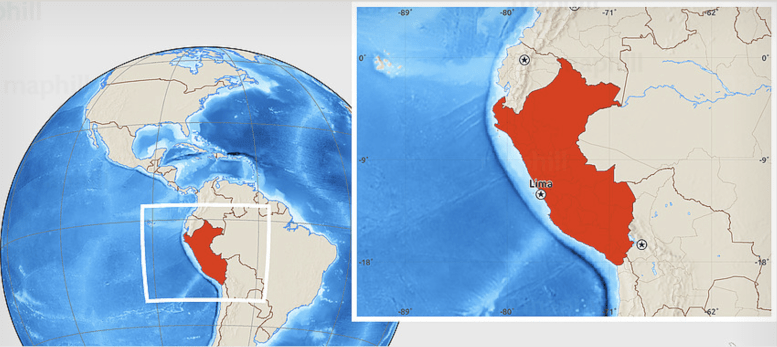A draft law under review in Peru’s parliament would exempt industrial hemp from the country’s drug laws and legalize farming and processing under a THC limit of 1.0%.
Presented by Congressman Luis Angel Aragon Carreño of the Acción Popular party, the law would legalize all parts of the hemp plant, allowing its use in a wide range of products. While flowers could be used to produce CBD, smokable products are specifically prohibited in the bill’s language.
The law would restructure Peru’s existing cannabis regulatory framework which is focused exclusively on medical cannabis and prohibits the use of non-flower parts of cannabis plants. In addition to scrapping those restrictions, the proposed measure would remove hemp from Peru’s regulation on narcotic and psychotropic drugs, and establish a government-backed hemp program.
Laggard
Peru passed its medical cannabis law in 2017, setting guidelines only late last year, but the country has been a laggard among other Latin American countries in developing a national hemp industry.
“The opportunities for industrial cannabis are great,” however “this (current) law prevents the development of projects attached to the medicinal industry that serve to demonstrate the industrial benefits of this plant,” according to stakeholders who have joined to advocate for the hemp bill through an educational campaign and lobbying to lawmakers
Parliamentarians are now consulting with agrarian and industrial associations regarding hemp’s possibilities in such sectors as textiles, packaging, biodegradable plastics, fodder and food, and assessing the industry’s potential to attract investment, provide jobs and generate tax revenue.
$$ projections
Recognizing hemp’s potential to contribute to Peru’s economy, the bill suggests the domestic industry could generate annual estimated income of $35 million, with roughly $23 million of that coming from CBD extracts.
Under the proposed law, licenses would be required for commercial growing and processing; individual persons would not be required to have licenses, but would need to demonstrate the legal origin of any hemp raw material used in their production.
Administration would be under the Ministry of Agrarian Development and Irrigation (MIDAGRI), the Ministry of Production and authorities responsible for other relevant sectors, who would set specific regulations.
Issues under study
Ongoing consultations are focused on crop control by anti-drug authorities, seed sourcing, health protocols, environmental benefits, and opportunities to capitalize on global carbon markets, according to the advocacy group, which is led by Raul Injoque, Peru’s ambassador to the Latin American Industrial Hemp Association, and includes representation by both domestic and international organizations and companies.
While Peru has indigenous hemp genetics, local varieties are unproven for fiber or grain production, the advocacy group noted, recommending hemp farming initially be based on certified cultivation seed from Europe or China.
Support
CO2 sequestration and the remediation of soils polluted by heavy metals could also be positive outcomes of a developed hemp industry, the group also suggested.
Under the draft bill, MIDAGRI and the Ministry of Production would advance development through training, promotion, research and support for entrepreneurs, with specific emphasis on supporting small farmers and boosting agrarian communities.
In other specific provisions in the draft bill:
- Planting, cultivation, harvesting, post-harvest operations, storage, collection, transformation, transportation, processing, marketing, import and export of hemp and hemp-derived products would be allowed.
- Production would be allowed for “seeds, oils, tinctures, resins, extracts, powder, flour, fibers and other outputs” that “can be used in the manufacture of food products for human or veterinary consumption, cosmetic products, construction materials, energy and construction, in the textile industry, and any other form of industrialization, manufacturing or production.”
- Labeling of final products made from hemp intended for distribution and sales would be required to carry labeling which specifies that they contain less than 1.0% delta-9 THC.
- A fund for the protection and surveillance of hemp crops would be established, with those activities administered by the Anti-Drug Directorate of the National Police of Peru.
- A registry of hemp farmers, processors and importers would also be established.

